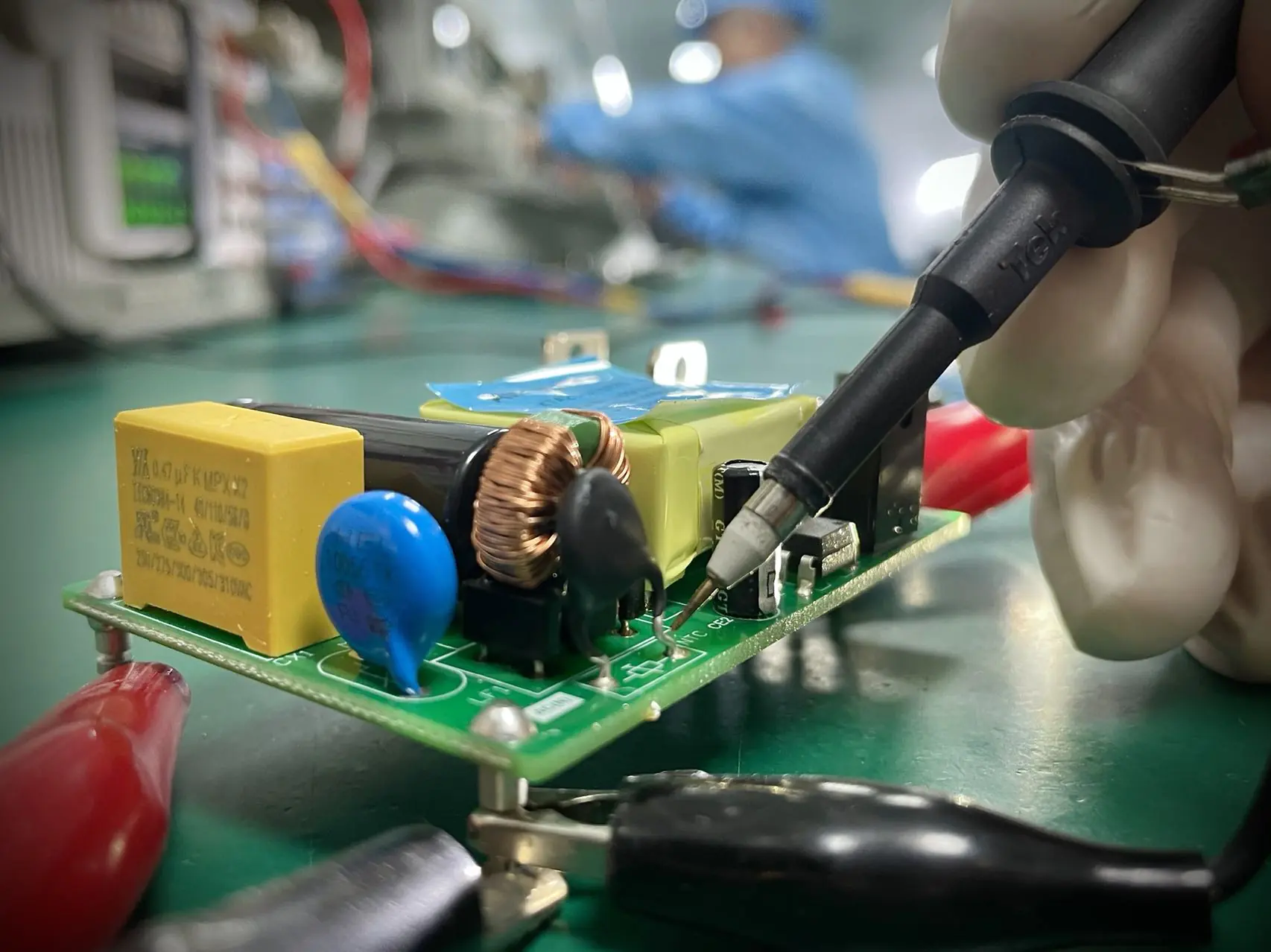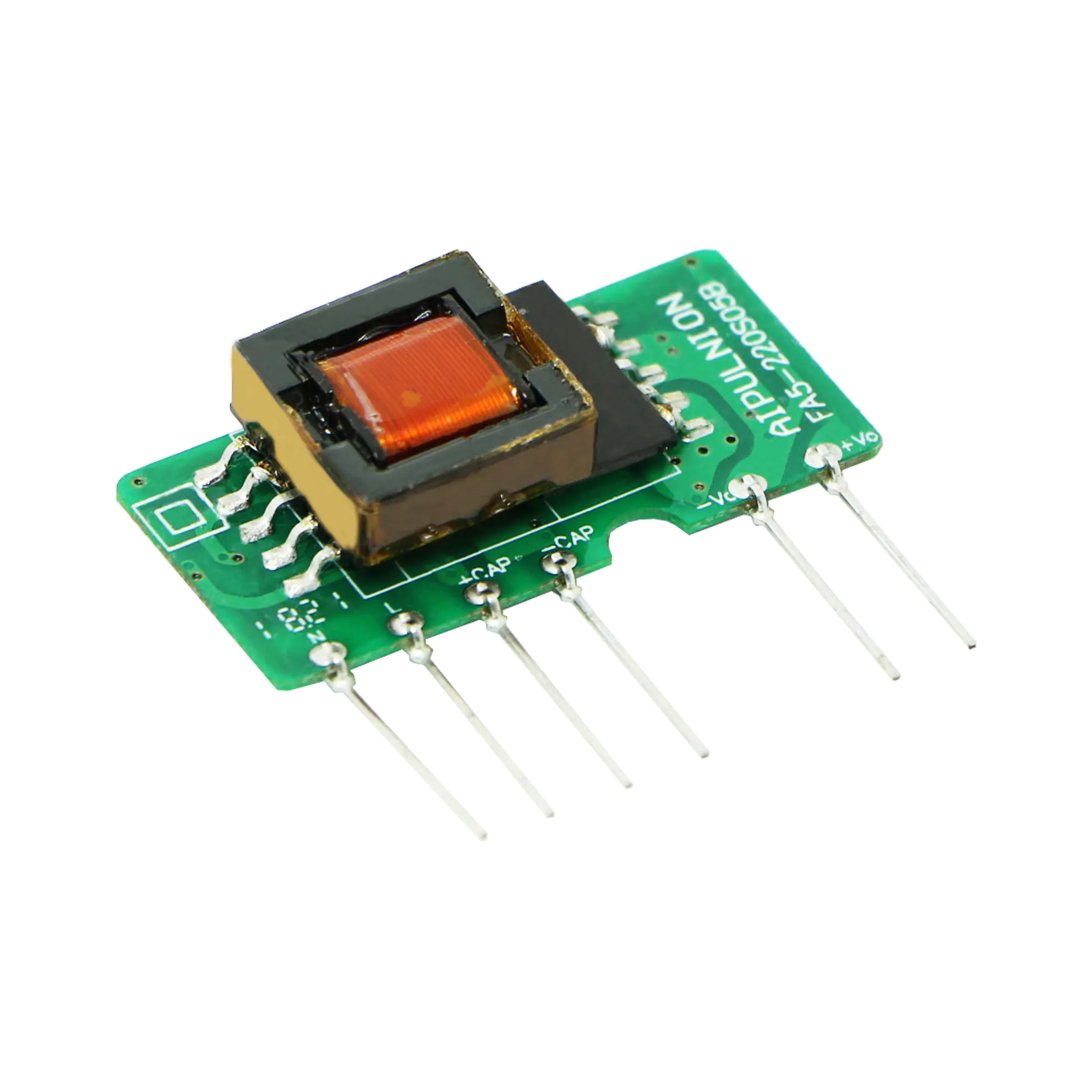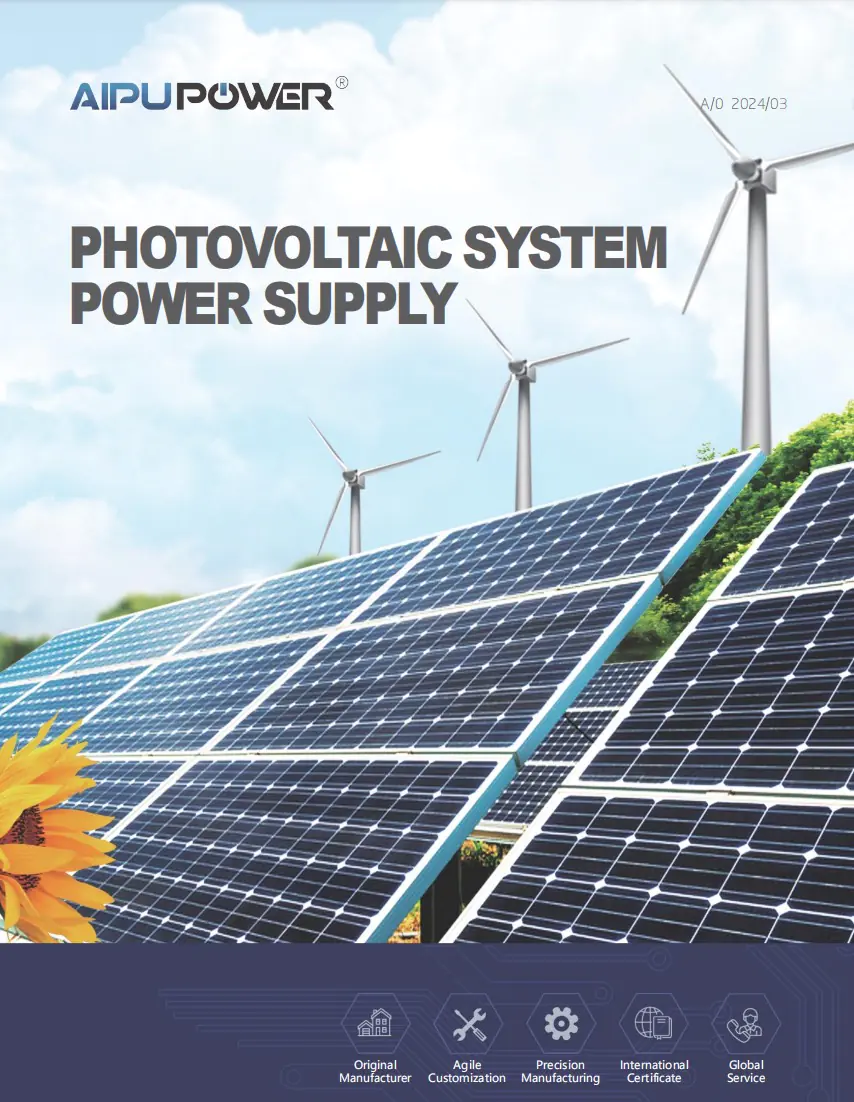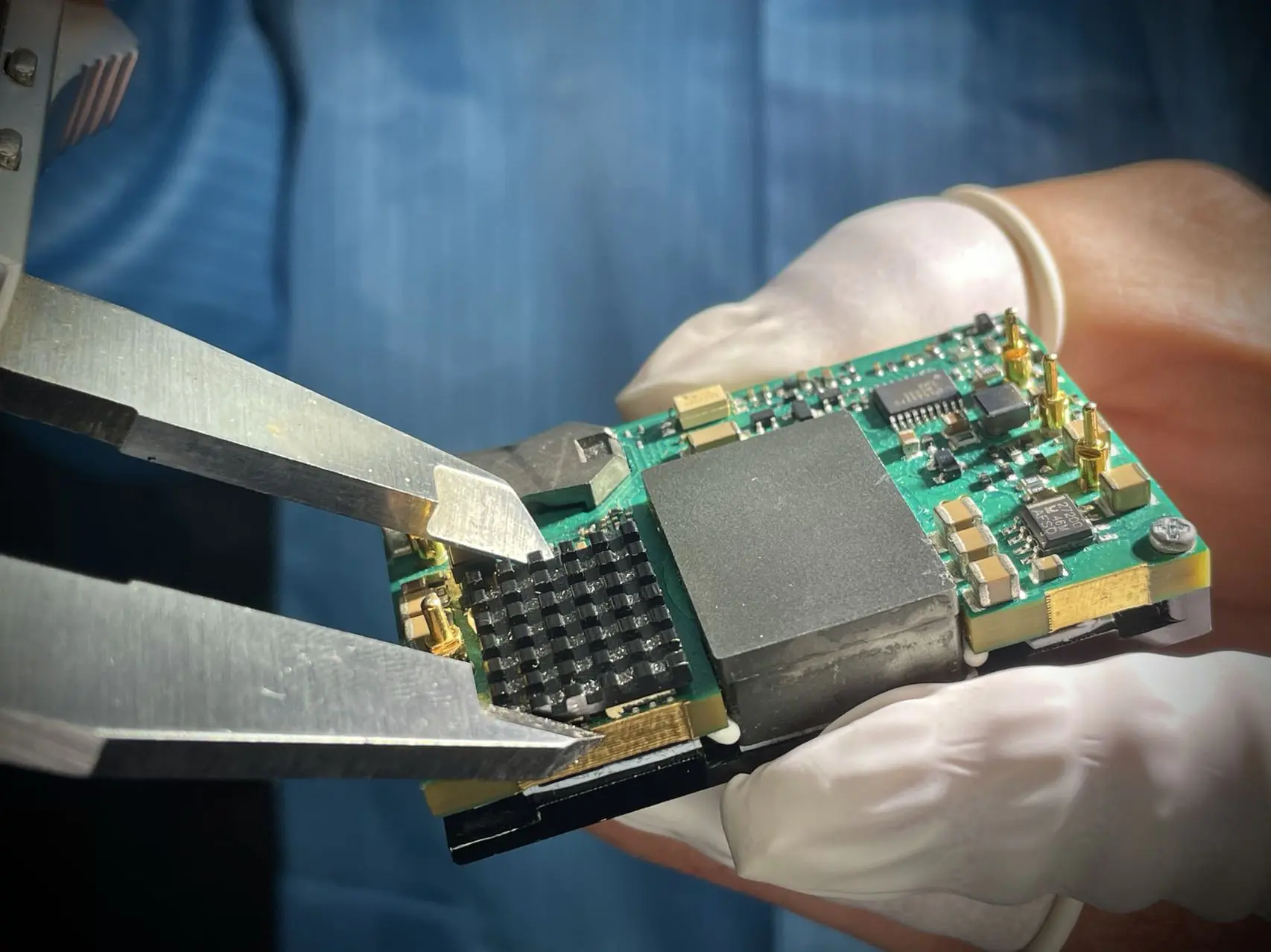
Unleashing Power: The Ultimate Guide to DC-DC Converters
DC-DC converters are the unsung heroes of modern electronics, playing a crucial role in power management and voltage regulation. These versatile devices are essential for efficiently converting one DC voltage level to another, making them indispensable in a wide range of applications. In this comprehensive guide, we’ll explore the world of DC-DC converters, their benefits, and why they’re a must-have for any power-hungry project.
Table of Contents
What is a DC-DC Converter and How Does it Work?
A DC-DC converter is an electronic circuit that transforms one level of direct current (DC) voltage into another. These devices are fundamental components in power supplies, enabling the efficient conversion of voltage levels to meet the specific requirements of various electronic systems.The basic principle behind a DC-DC converter involves:
- Taking an input DC voltage
- Processing it through switching elements and energy storage components
- Delivering a regulated output voltage that is either higher, lower, or inverted from the input
DC-DC converters come in various types, including:
- Buck converters (step-down)
- Boost converters (step-up)
- Buck-boost converters (step-up/step-down)
Each type serves different purposes and offers unique advantages depending on the application.
Why Should You Consider Using a DC-DC Converter?
There are several compelling reasons to incorporate DC-DC converters into your power management strategy:
- Efficiency: DC-DC converters are highly efficient, often achieving conversion efficiencies of over 90%. This means less energy is wasted as heat, leading to cooler operation and lower energy consumption.
- Voltage Regulation: These devices provide stable, regulated output voltages, ensuring consistent power delivery to sensitive electronic components.
- Flexibility: DC-DC converters allow you to use a single power source to supply multiple voltage levels, simplifying system design and reducing costs.
- Size and Weight: Modern DC-DC converters are compact and lightweight, making them ideal for space-constrained applications.
- Wide Input Range: Many DC-DC converters can operate over a wide range of input voltages, making them suitable for use in variable power environments.
What Are the Key Applications for DC-DC Converters?
DC-DC converters find use in a vast array of applications across various industries:
- Automotive: Powering infotainment systems, LED lighting, and electric vehicle subsystems
- Telecommunications: Ensuring reliable power for network equipment and base stations
- Industrial Automation: Providing stable power for sensors, controllers, and actuators
- Consumer Electronics: Managing power in laptops, smartphones, and other portable devices
- Renewable Energy: Optimizing power conversion in solar and wind energy systems
- Medical Devices: Supplying precise, regulated power for critical healthcare equipment
How Do You Choose the Right DC-DC Converter for Your Project?
Selecting the appropriate DC-DC converter involves considering several factors:
- Input Voltage Range: Ensure the converter can handle your expected input voltage fluctuations.
- Output Voltage and Current: Match the converter’s capabilities to your load requirements.
- Efficiency: Look for high-efficiency models to minimize power loss and heat generation.
- Isolation: Determine whether you need isolated or non-isolated DC-DC converters based on your application’s safety and noise requirements.
- Package Type: Consider the mounting options (e.g., PCB mount, chassis mount, DIN rail mount) that best suit your design.
- Environmental Factors: Evaluate the converter’s ability to withstand temperature extremes, vibration, and other environmental challenges.
What Are the Different Types of DC-DC Converter Packages?
DC-DC converters come in various package types to accommodate different mounting and integration needs:
- PCB Mount: These compact modules are designed for direct soldering onto printed circuit boards, ideal for space-constrained applications.
- Chassis Mount: Larger converters that can be mounted directly to the chassis of equipment, offering higher power ratings and improved heat dissipation.
- DIN Rail Mount: These converters are designed to snap onto standard DIN rails, commonly used in industrial control panels and electrical enclosures.
- Enclosed: Fully enclosed converters provide protection against environmental factors and are often used in harsh industrial settings.
- Open Frame: These converters offer a balance between size and power, with exposed components for better heat dissipation.
How Do Isolated vs. Non-Isolated DC-DC Converters Differ?
The choice between isolated and non-isolated DC-DC converters depends on your application’s specific requirements:Isolated DC-DC Converters:
- Provide electrical isolation between input and output
- Offer protection against noise and ground loops
- Typically used in medical devices, industrial equipment, and telecommunications
Non-Isolated DC-DC Converters:
- Simpler design and often more efficient
- Smaller form factor and lower cost
- Suitable for applications where isolation is not required
What Are Some Featured Products in the DC-DC Converter Market?
Several manufacturers offer high-quality DC-DC converters, with aipupower being a prominent player in the industry. Some popular product families include:
- Low-Power Converters: Ideal for powering sensors and small circuits
- High-Efficiency Models: Designed for applications where energy conservation is crucial
- Wide Input Range Converters: Perfect for use in variable power environments
- Ruggedized Converters: Built to withstand harsh industrial conditions
“Choosing the right DC-DC converter can significantly impact the performance and reliability of your power system.” – Experienced Power Systems Engineer
How Can DC-DC Converters Contribute to Energy Efficiency?
DC-DC converters play a vital role in improving overall system energy efficiency:
- Minimizing Power Loss: High-efficiency converters reduce energy waste during voltage conversion.
- Enabling Power Management: By providing multiple voltage rails, DC-DC converters allow for more sophisticated power management strategies.
- Supporting Renewable Energy: DC-DC converters are essential in solar and wind power systems, helping to optimize energy harvesting and storage.
What Considerations Should Engineers Keep in Mind When Integrating DC-DC Converters?
When incorporating DC-DC converters into your designs, consider the following:
- Thermal Management: Ensure proper heat dissipation to maintain converter efficiency and reliability.
- EMI Mitigation: Implement appropriate filtering and shielding to minimize electromagnetic interference.
- Layout Optimization: Carefully design PCB layouts to minimize noise and improve converter performance.
- Transient Response: Consider the converter’s ability to handle sudden load changes in your application.
- Reliability Testing: Conduct thorough testing to ensure the converter meets your system’s reliability requirements.
How Do DC-DC Converters Enable Seamless Integration in Various Applications?
DC-DC converters facilitate seamless integration in numerous ways:
- Voltage Compatibility: They allow different components with varying voltage requirements to work together harmoniously.
- Form Factor Flexibility: With options ranging from tiny surface-mount devices to larger chassis-mount units, DC-DC converters can fit into almost any design.
- Customization: Many manufacturers offer customization options to meet specific application needs.
- Standardization: Industry-standard footprints and pinouts make it easy to swap or upgrade converters as needed.
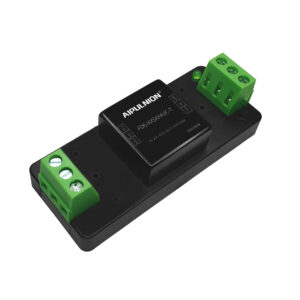
A compact DC-DC converter module suitable for various industrial applicationsIn conclusion, DC-DC converters are indispensable components in modern power systems, offering efficient voltage conversion, flexibility, and reliability. Whether you’re designing industrial power supplies, working with AC-DC converters, or exploring DC-DC converter products, understanding the capabilities and applications of these devices is crucial for optimizing your power management strategy. By carefully considering your specific requirements and choosing the right DC-DC converter, you can ensure that your projects benefit from stable, efficient, and reliable power conversion.

